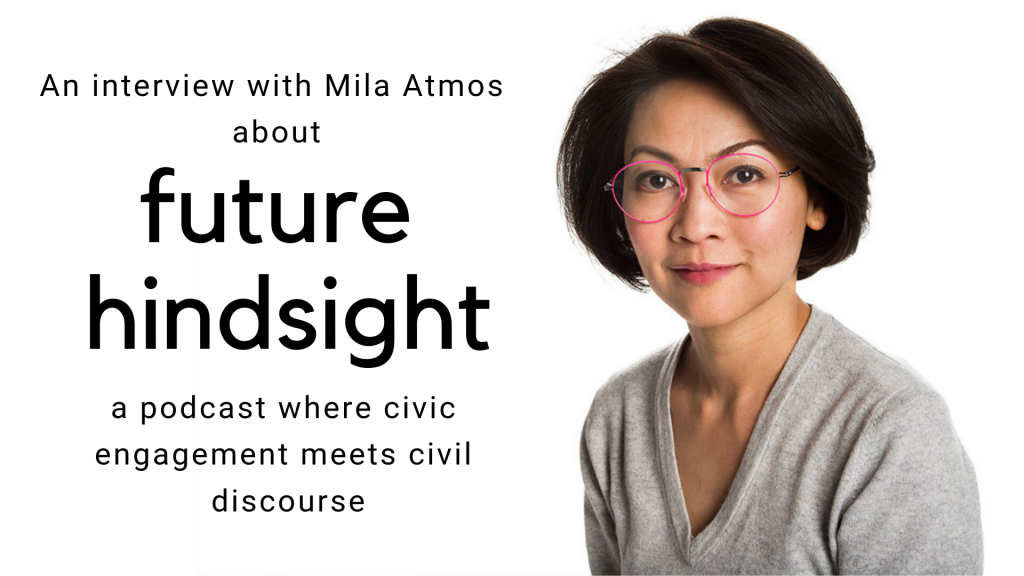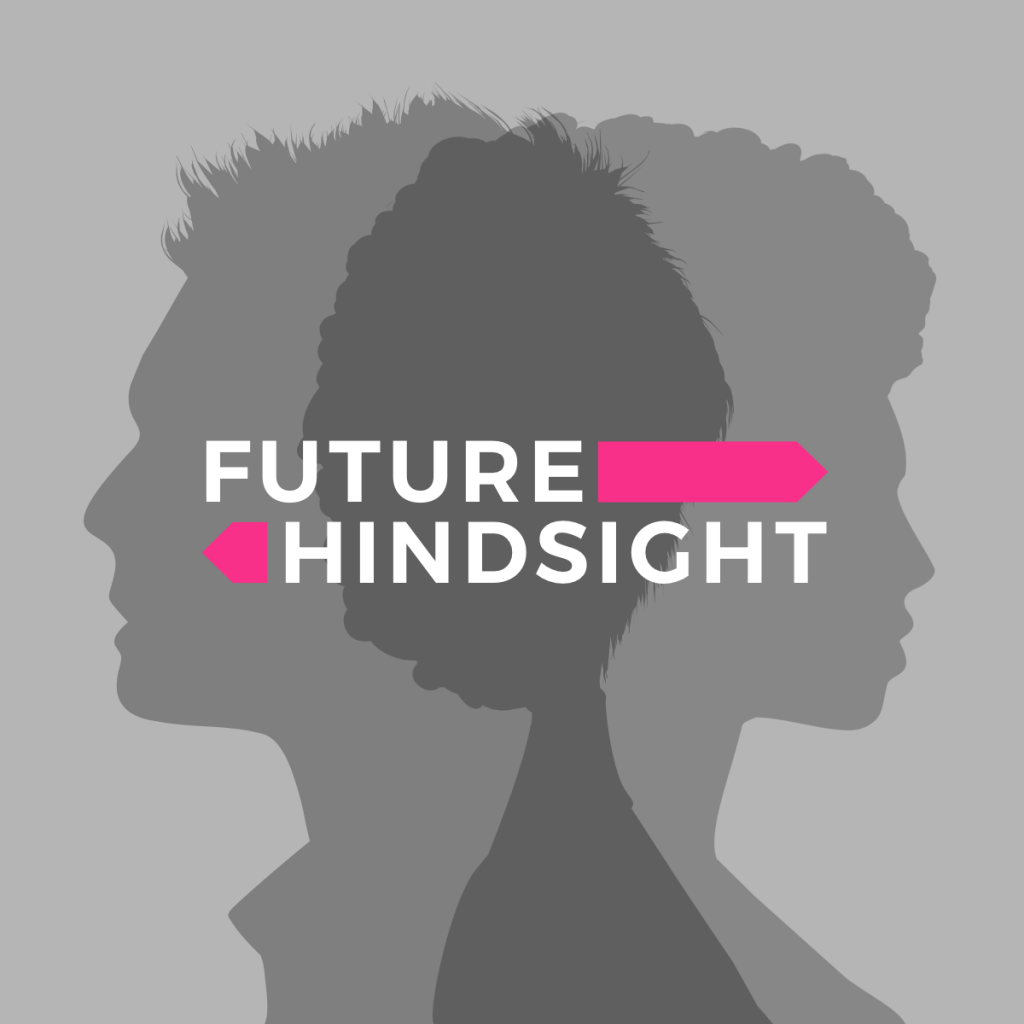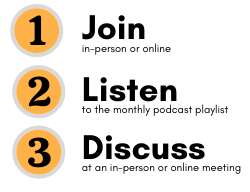Future Hindsight: An Interview with Mila Atmos
by Jenna Spinelle on February 26, 2019.


Like a lot of people, Mila Atmos felt discouraged after the 2016 U.S. presidential election. She saw political discourse falling to a new low and devolving from civil disagreements into people shouting at each other on cable news. She also saw a lack of civic engagement on all sides of the political spectrum.
From her background in international and public affairs, she knew that the only way to have a better government and better political discourse was to bring more people to the table. She started her podcast Future Hindsight as a way to do just that.
The show recently launched its fifth season, and I caught up with Mila to learn more about it:
PBC: What are you hoping people take away from Future Hindsight?
Mila: Most people don’t hear the news, they only see the soundbites. They don’t educate themselves about how some of our democratic institutions work. Someone might think they’re doing enough by voting, but there’s so more to it than that. I hope that the show will help people understand all of the other components that go into civil discourse and civic engagement.
PBC: How did you decide a podcast was the best medium for your message?
Mila: People don’t read these days, so I knew blogging was not going to be the right medium. I love taking in information through audio and I thought other people would like it, too. I thought about doing something in the first person, but it sounded too much like a lecture. I spend a lot of time writing questions and figuring out ways to ask them so that it sounds natural when you listen, like someone having a conversation.
PBC: This season of Future Hindsight focuses on poverty. Why did you choose that topic?
Mila: I have always been interested in inequality. When people think about inequality and poverty, they think about it in very abstract ways and I’m trying to make the problem more concrete. For example, I was astounded to find how unjust the criminal justice system is in terms of the death penalty. Poor people are at the mercy of a court-appointed lawyer who is not experienced in capital cases. It’s shocking how much the court does not support the defendant. We as Americans have an intuitive sense that it’s unfair, but we don’t know what to do about it.
PBC: Who else makes Future Hindsight possible?
Mila: Peter Fedack, audio producer/composer: As a musician, composer, and audio engineer, working with Future Hindsight is a perfect fit for Peter Fedak. Having many years of technical experience, as well as a passion for meaningful podcast programming, Peter is excited to help engage people in new ways of thinking about their place in the world. Living in New York City, he has studied composition and theory at Juilliard College, audio engineering at Harvestworks, holds a Bachelor’s of Music from NYU and is currently pursuing a graduate degree there in Music Technology.
Myriam Zumbühl, associate producer: Myriam Zumbühl is a journalist and producer. After 20 years as a host, editor and producer at Swiss National Public Radio and Television she founded her production company Harvest Productions where she finds joy in developing exciting media productions and bringing interesting people and strong stories together for audio, film, books or written stories.
PBC: What’s next for Future Hindsight?
Mila: Right now, I’m really interested in the power of protests. I’ve never been to one but I’m told that people who attend them leave feeling really energized. I don’t know whether they move the needle on public policy, but am interested in exploring that question further.
About the author:
Jenna Spinelle is a writer and journalism instructor in State College, Pennsylvania. She is a leader of the PBC Virtual Chapter and hosts the Democracy Works podcast.






